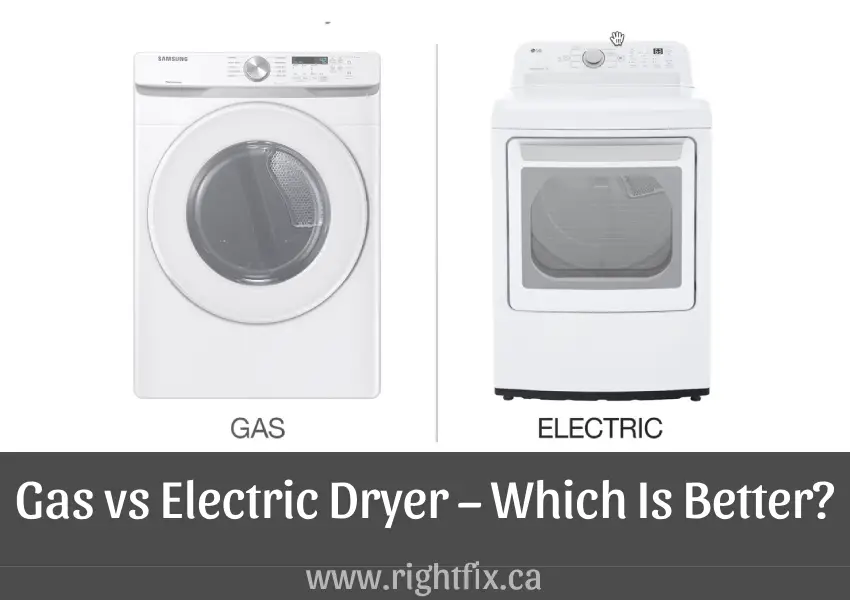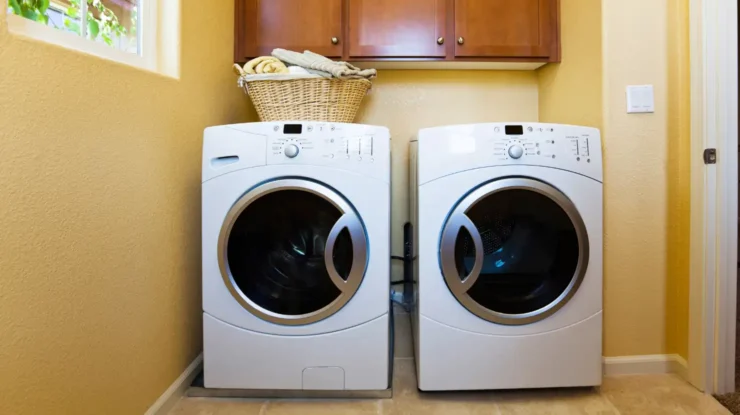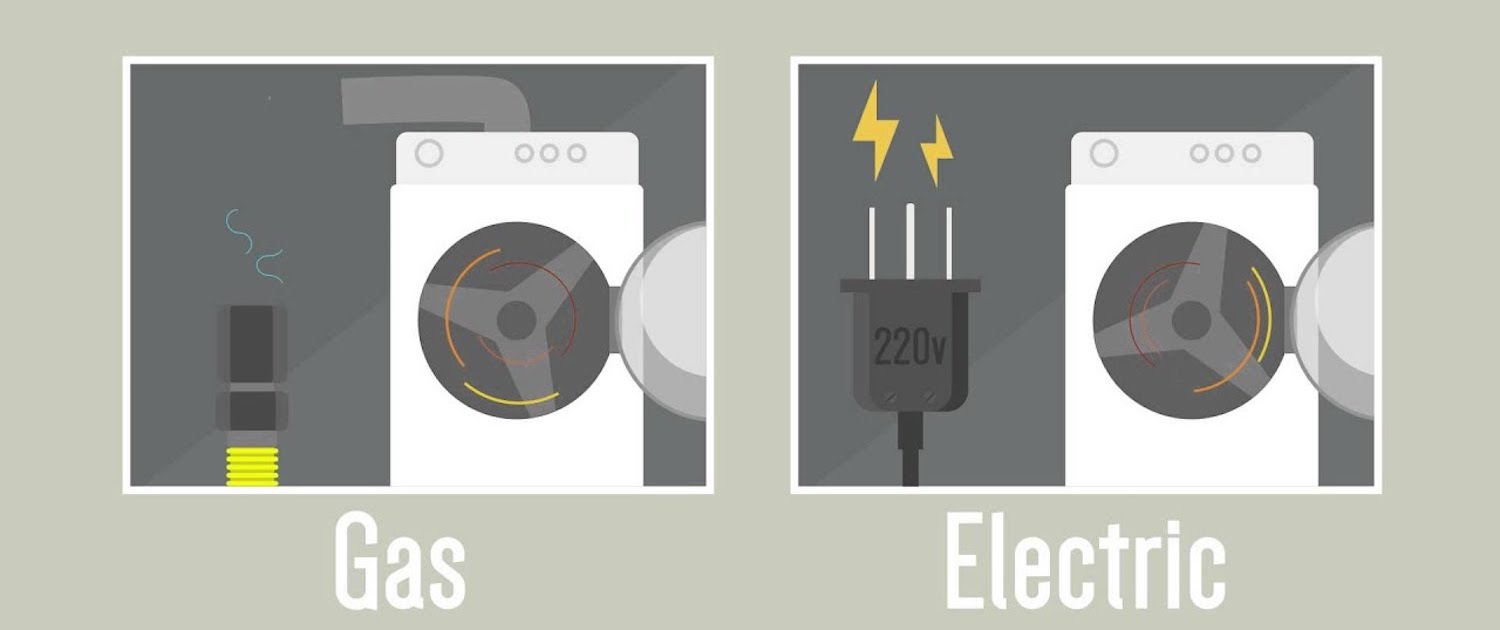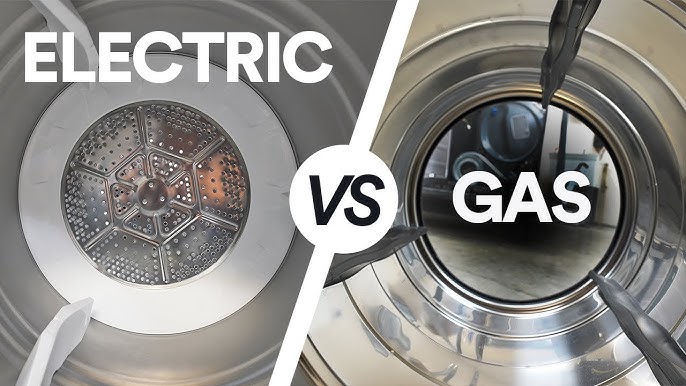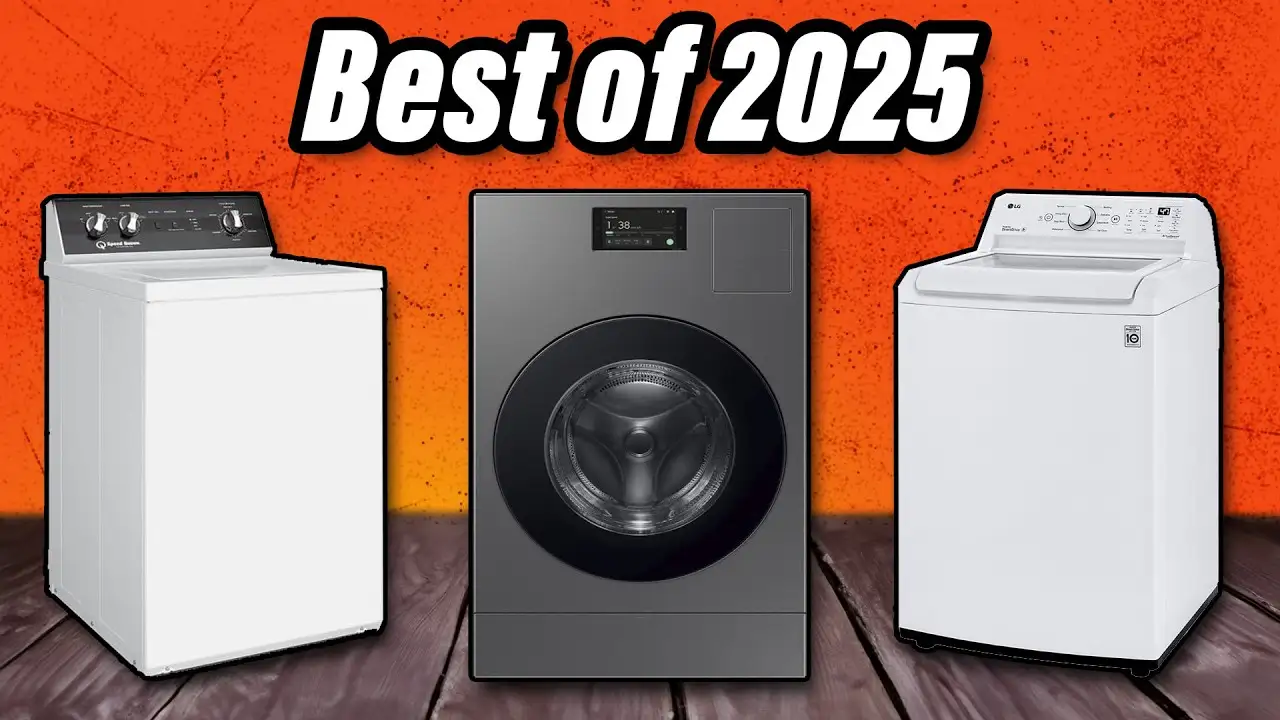Gas vs Electric Dryer – Which Is Better?
When choosing a new dryer, the decision often comes down to two main types: gas and electric. Both have their advantages and disadvantages, so understanding the key differences will help you make the best choice for your household. This guide breaks down the pros and cons of gas and electric dryers based on factors like efficiency, cost, performance, and installation.
How Do Gas and Electric Dryers Work?
Gas Dryers
Gas dryers use natural gas or propane to generate heat. They still require electricity to power the drum, controls, and fan, but the primary heat source comes from gas combustion.
Key Features of Gas Dryers:
- Faster drying times due to high heat levels.
- Requires a gas hookup in addition to electrical power.
- Typically more expensive upfront but cheaper to operate.
Electric Dryers
Electric dryers rely entirely on electricity for both heating and powering the unit. They are the most common type of dryer and are available in a wider variety of models.
Key Features of Electric Dryers:
- Heats using electric coils, which may take longer to reach optimal temperatures.
- Only requires a 240-volt outlet for operation.
- Lower initial cost but potentially higher energy costs over time.
Gas vs Electric Dryers: Head-to-Head Comparison
1. Cost of Purchase and Installation
- Gas Dryer: Typically costs more upfront, and installation may require a professional to set up a gas line if one isn’t already available.
- Electric Dryer: Lower initial purchase cost and easier to install, especially if a 240V outlet is already in place.
2. Energy Efficiency
- Gas Dryer: More energy-efficient as gas is generally cheaper than electricity and heats up faster.
- Electric Dryer: Less efficient overall, as electric heating elements consume more energy to achieve the same results.
3. Drying Performance
- Gas Dryer: Faster drying times due to more intense heat, which can also reduce wear on clothes.
- Electric Dryer: Slower drying times but still effective, especially for smaller loads.
4. Operational Cost
- Gas Dryer: Lower ongoing operational costs since gas is usually less expensive than electricity in most areas.
- Electric Dryer: Higher operational costs, especially in areas with high electricity rates.
5. Maintenance
- Gas Dryer: Requires more maintenance due to its reliance on gas lines and vents, but the components are durable and long-lasting.
- Electric Dryer: Requires less maintenance but may need occasional repairs for heating elements or electrical issues.
6. Environmental Impact
- Gas Dryer: Produces carbon emissions during operation but uses less energy overall.
- Electric Dryer: Cleaner operation at the appliance level but may indirectly contribute to emissions if the electricity comes from non-renewable sources.
Pros and Cons of Gas Dryers
Pros:
- Faster drying times.
- Lower operational costs.
- Energy-efficient in the long term.
Cons:
- Higher upfront cost.
- Requires a gas hookup and professional installation.
- May not be suitable for every home.
Pros and Cons of Electric Dryers
Pros:
- Lower initial cost.
- Easier installation—requires only a 240V outlet.
- Widely available and compatible with most households.
Cons:
- Higher energy consumption.
- Slower drying times compared to gas dryers.
- Potentially higher long-term operational costs.
How to Choose Between Gas and Electric Dryers
Consider Your Home’s Setup
- Gas Dryer: If your home already has a gas line installed, a gas dryer can be a cost-effective choice.
- Electric Dryer: If you don’t have a gas hookup, an electric dryer is more practical and affordable.
Think About Your Usage
- If you frequently dry large loads of laundry or need faster drying times, a gas dryer may be more efficient.
- For smaller households or occasional use, an electric dryer may be sufficient.
Evaluate Long-Term Costs
- Gas dryers offer lower operational costs over time, but electric dryers are easier and cheaper to install initially.
Conclusion: Which Is Better?
The choice between a gas and electric dryer depends on your individual needs, budget, and home setup.
- Choose a gas dryer if you value faster drying times, lower operational costs, and energy efficiency.
- Choose an electric dryer if you want a lower upfront cost, simpler installation, and don’t have access to a gas line.
Location we Service
- Ajax
- Alliston
- Aurora
- Bolton
- Bradford
- Brampton
- Brantford
- Burlington
- Caledon
- Cambridge
- Concord
- East York
- Etobicoke
- Georgetown
- GTA
- Guelph
- Halton Hills
- Hamilton
- Innisfil
- Keswick
- King City
- Kitchener
- Kleinburg
- Maple
- Markham
- Milton
- Mississauga
- New Tecumseth
- Newmarket
- North York
- Oakville
- Orangeville
- Oshawa
- Pickering
- Richmond Hill
- Scarborough
- Schomberg
- Stouffville
- Thornhill
- Toronto
- Unionville
- Uxbridge
- Vaughan
- Waterloo
- Whitby
- Woodbridge

